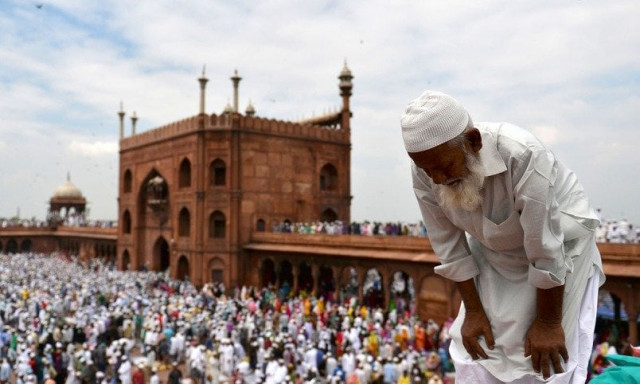Muslims in India outraged over Modi government's proposal to strip Waqf boards of powers
Muslim leaders accuse Modi's government of attempting to seize properties through waqf act amendments.

The Modi government is facing a strong backlash after proposing 40 amendments to the Indian Waqf Act, sparking concerns that Muslim properties may be seized.
The Waqf Act allows Muslims to donate land and other assets for charitable purposes, with oversight from Muslim parliamentarians, religious scholars, and state bar councils.
The amendments, however, would strip Waqf boards of their powers, potentially allowing the government to control these assets.
Waqf refers to the permanent dedication of movable or immovable property by an individual for any purpose recognised under Muslim law as pious, religious, or charitable.
The Waqf Act, 1995 was introduced to regulate assets known as Auqaf—properties donated for religious or charitable causes under Muslim law. A person who dedicates such property is called a wakif.
The Act vests the general supervision of all Waqf properties in a state with the State/Union Territory Waqf Boards (SWBs), as outlined in Section 32. These boards are responsible for managing the Waqf properties.
The original Waqf legislation, The Waqf Act of 1954, was enacted during Jawaharlal Nehru's tenure and laid the foundation for managing these properties, with provisions for trustees and mutawallis (managers).
India’s Home Minister Amit Shah recently announced plans to pass the Waqf Amendment Bill 2024 in Parliament, but human rights organisations and opposition parties have voiced their opposition. They accuse the government of trying to take over mosques, madrassas, and other properties, which are central to Muslim communities.
Leaders like Qasim Rasool Ilyas, spokesperson for the All India Muslim Personal Law Board, have condemned the bill, calling it an attack on both Muslim rights and the Indian Constitution.
"This bill is an attempt to seize Muslim Waqf properties," Ilyas said, adding that the government’s amendments are a direct threat to the religious and cultural heritage of Muslims in India.
The Ameer of Jamaat-e-Islami Hind echoed these concerns, saying the bill is part of a broader effort by the Modi government to control Waqf properties. Under the proposed amendments, non-Muslims could be added to Waqf boards, and authority over Waqf assets would be given to district collectors.
These changes have alarmed many in India’s Muslim community, with critics warning of a potential threat to the integrity of religious institutions.The government has stated that the proposed Waqf Amendment Bill aims to improve accountability and transparency in the operations of Waqf boards.



















COMMENTS
Comments are moderated and generally will be posted if they are on-topic and not abusive.
For more information, please see our Comments FAQ